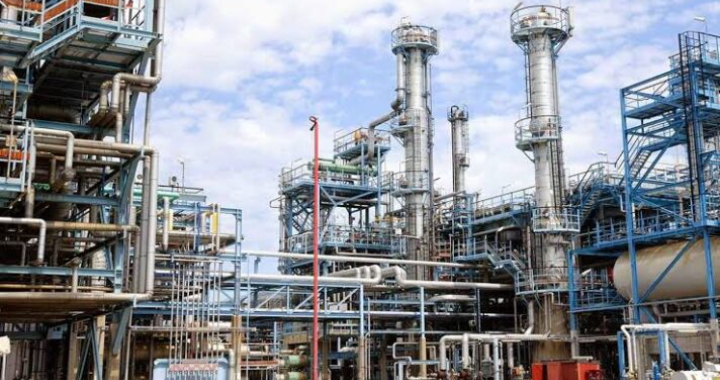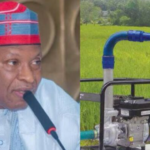The Senate has raised concern over 1.5 billion dollars approved in 2021 for the turn-around maintenance of the Port Harcourt refinery with little or no result.
Sen. Opeyemi Bamidele, chairman, Senate Ad Hoc Committee to Investigate the alleged economic sabotage in the Nigerian petroleum industry, raised the concern during an interactive session with stakeholders on Wednesday, in Abuja.
Mr Bamidele, who is also the Senate leader, said it was unfair and wrong to treat public companies shabbily while private businesses were flourishing and thriving.
He recalled that the Federal Executive Council (FEC) had approved the plan by the ministry of petroleum resources to rehabilitate and turn around the Port Harcourt refinery with 1.5 billion dollars.
Mr Bamidele expressed concerns about the dysfunctional state of government-owned refineries in spite of billions of dollars spent on turn-around maintenance.
“The federation is undergoing a truly challenging period. The distribution and supply of refined petroleum products has been irregular and problematic in the recent history of our fatherland.
“The long queues at filling stations are obviously a testament to this challenge.
“A situation whereby we now depend almost entirely on the importation of these products even when we daily supply the global oil market about two per cent of its crude oil requirements is worrisome,” he said.
He said also of serious concern was the importation of hazardous petroleum products and dumping of substandard diesel into the country.
Under different administrations since 1999, Mr Bamidele observed that the federal government “has invested billions of dollars to maintain and turn around the state-owned refineries in Kaduna, Port Harcourt and Warri. But the refineries are not functioning.
“In 2021, specifically, the Federal Executive Council approved 1.5 billion dollars for the turn-around maintenance of the Port Harcourt Refinery. Yet, this investment has not yielded significant returns.
“For us in the Senate, we believe it is unfair and unpatriotic to treat government businesses or public corporations as an orphan while private businesses are flourishing and thriving.”
He said that the National Assembly was ready to carry out the investigative hearing with all sense of honour and responsibility.
Mele Kyari, group chief executive officer of Nigerian National Petroleum Company Limited (NNPCL), refuted claims of sabotaging domestic refineries.
“All of us here see what is happening in the media. Targeted personal attack on my person, on the institution. And we all know how this works.
“They are deliberate, they are calculated. So, that creates the impression that NNPCL and our leadership are doing anything to create economic sabotage in our country.
“It is far from it. This company has grown. We are proud to say this. From a lost company for 43 years to a profit-making company today,” said Mr Kyari.
Also, Heineken Lokpobiri, minister of state for petroleum resources, said that the oil sector was bedevilled by a lot of misinformation.
“This senate should do Nigerians a favour by televising the proceedings of this committee live.
“This will do a whole lot of justice not only to the Senate but we in the executive and key leaders in the sector.
“Because of the fundamental nature of this investigation that has to do with alleged economic sabotage with importation of substandard products into the country, we urge the Senate to ensure we do a live broadcast,” he said.
He said the government was committed to ensuring that local industries and all stakeholders in the oil sector were protected.
“We are committed to supporting Dangote Refinery; we are also supporting modular refineries and we have been resolving whatever issues they had brought to our attention,” the minister said.
Also speaking at the investigative hearing, Aliyu Suleiman, chief strategy officer, Dangote Industry Ltd., said the refinery started full production in March.
“Since then, we have processed about 50 million barrels of crude. We have produced about five million tons of petroleum products and these petroleum products have been sold in various parts of the country,” he said.
Wale Edun, minister of finance and coordinating minister of the economy, in his own remarks, said the increase in crude oil production would stabilise the country’s foreign exchange market



